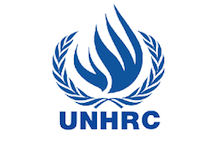Report on the Forum of Business and Human Rights
27 Jun 2018 02:00h
Event report
The meeting started with a general debate about item 4. on the agenda of the Human Rights Council – Human rights situations that require the Councils attention. Representatives from non-governmental organisations (NGOs) and advocacy groups raised concerns about human rights situations that require the Council’s attention, such as but not limited to, refugee situations, the rights of children and indigenous peoples, the protection of children and refugees from torture and violence, violence and discrimination against women and girls, freedom of the press, humanitarian law violations, separation of immigrant children from their parents, and human rights violations in Myanmar, Rwanda, Kashmir, Bahrain, Tibet, Egypt, Vietnam, South Sudan, the Sub-Saharan region, Venezuela, Sri Lanka, Pakistan, India, and Nicaragua. Underlining the violation of human rights in digital space, Article 19 expressed concerns about the new shape of online censorship and the regressive legislation that allows for extra-judicial blocking, filtering and 24-hour take-down notices, putting pressure on media outlets to self-censor.
The session then focused on item number 5 of the agenda Human rights bodies and mechanisms and addressed the report of the Working Group on the issue of human rights and transnational corporations and other business enterprises. The report was on on the issue of human rights and transnational corporations and other business enterprises on the 6th session of the Forum on Business and Human Rights (A/HRC/38/49). Ms Anita Ramasastry, Chair of the Working Group,
Since 2012, the Forum on Business and Human Rights has become the world’s biggest event on business and human rights. It was established by the Human Rights Council with resolution 17/4, in which it also endorsed the Guiding Principles on Business and Human Rights, implementing the United Nations ‘Protect, Respect and Remedy’. The mandate of the forum is to implement the guiding principles, to promote dialogue and co-operation on topics related to business and human rights. It must be noted that the forum attracts multiple stakeholder groups from state delegations, the business sector, civil society, academia, national human rights institutions, and international organsations. The theme of the 2017 forum was ‘Realizing access to effective remedy’, and aimed to tackle the gaps and shortcomings in current efforts, and promote emerging good practices and innovations to ensure access to effective remedy for victims of adverse human rights impacts of business-related activities. The multistakeholder discussion underlined the 3rd pillar of the Guiding Principles on Business and Human Rights: State-based judicial mechanisms, state-based non-judicial grievance mechanisms, and non-state-based grievance mechanisms. The Chair then navigated the discussion to issues related to human rights defenders and the role of business; to the connection between the ‘Protect, Respect and Remedy’ pillars and the sustainable development goals (SDGs); to the implementation of gender balance in both sate and business practice; and the interplay between new technology and business and human rights.
Effective remedies against business-related human rights abuses are often hampered by existing barriers. Thus, the Working Group stressed the importance of improving the third pillar through the following recommendations:
-
The state should put in place effective remedial mechanisms and tackle the barriers hindering access to those mechanisms;
-
The rights holders should be the focus and centre of the remedy process;
-
The freedom of fear from victimisation should be addressed;
-
Efforts should be effective in the process and in the outcomes; and
-
With regards to cross-border cases of human rights abuses, enforcement efforts such as anti-bribery and environmental protection should be implemented.
Discussions in the forum raised the need for greater effectiveness of domestic public law regimes. Moreover, crucial gaps, challenges and discrimination against rights holders or indigenous people across regions and industries still exist. There is a need to change the mindset of businesses and the state economy policy framework, from a race to the bottom’ to ’a race to the top’. Furthermore, it must be noted that states should not look at human rights as ’speed breakers to economic development’. The forum has become a means for dialogue across all stakeholder groups and a platform to launch initiatives and engage partners with them. The 2018 forum will take place from 26 to 28 November and it will focus on ‘Business respect for human rights – building on what works’.
Related topics
Related event

